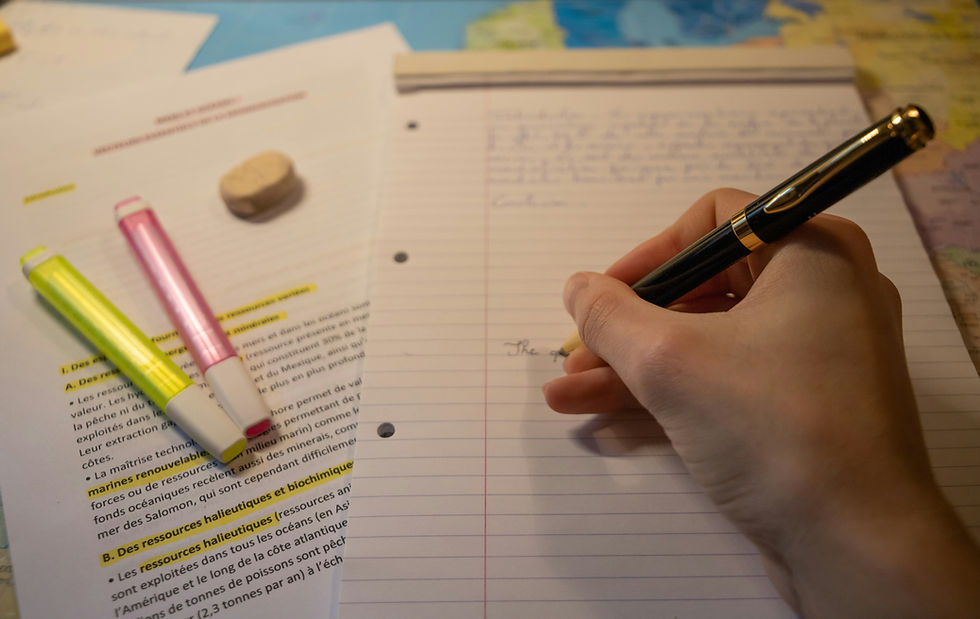What I Learned at the War College: Tips to Improve your Writing
- Sep 8, 2025
- 2 min read
I recently completed the Basic Strategic Art Program (BSAP) at the Army War College. This is a qualification course for Strategists, but also the best writing course I’ve taken in the Army. I’ve pulled some of the lessons, strategies and processes discussed and am posting them as a series titled, What I learned at the War College. In this second installment we'll discuss some Quick Tips to Improve your Writing.
Again, thanks to Dr. J.P. Clark for the extra time he puts in to improve his students’ writing and research skills.

Look it Up:
This not simply researching your topic, it means grammar, punctuation rules, and vocabulary. When you come across an esoteric grammar question in your writing, go to a source and find out instead of simplifying your sentence, guessing, or going with what “sounds right.”
Like most simple habits, this is easy
to say, challenging to execute. It takes mental discipline, especially when you have been writing for a long time, or are almost done with your project.
Think, Don’t just Accept
We’ve come a long way from spell-check in Word Perfect, but that doesn’t mean that Grammarly, or any AI-assisted writing tools are correct all the time. In fact, they will readily sacrifice meaning or nuance for simplicity, or event misinterpret things outright. This doesn’t mean “don’t use them,” it means, Microsoft Editor, Grammarly, or other programs should be incorporated into the editing process. Budget the time to go through suggestions individually. Never (and I hate using absolutes) just click “accept all changes” or whatever equivalent you have access to. Look through them and think:
Is the recommendation correct?
Is it better?
Why is it better?
What are the alternatives?
Just for reference, I am far from a professional writer, and using the paid version of Grammarly, I typically accept ~50-60% of the changes.
Close Reading
This is an active exercise that will dramatically improve the way you organize your own writing. It can be time consuming, but also helps retain information, so I’d recommend it when reading for a class. Simply write a reverse outline of other people’s work:
1) Why did the author divide up the sections and paragraphs like they did?
2) What are alternative approaches and sequencing?
3) To assess style, focus on a few paragraphs and observe the structure within and among them.
4) Examine word choice. What are some synonyms? Why did the author use this word and not another?

Gather the Tools
Though I haven't used all of these resources, each has come highly recommended from sources I trust.
Usage Dictionaries (or Usage Guides). These differ from a typical dictionary because they the give the author's professional opinion on how a word or phrase is used or should be used. For a detailed look at the purpose of a usage dictionary, see MLA's Style Center's explanation.
Style Guides. Writing style differs by industry, writing purpose, even individual organization. Here are some tried and true style guides to get you started:
Strunk & White, The Elements of Style
Williams & Colomb, Style
Rogers and Lasky-Fink, Writing for Busy Readers
Zinsser, On Writing Well
Pinker, The Sense of Style








Comments